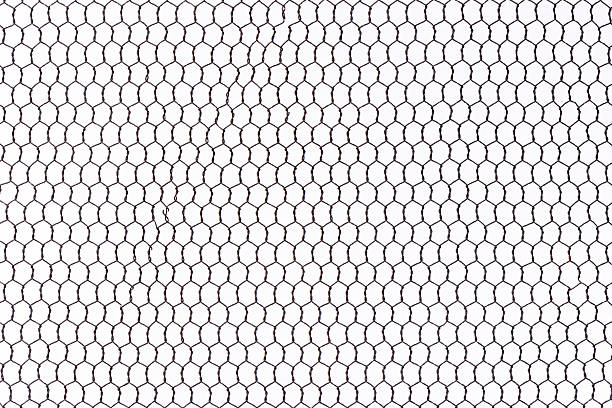Chicken mesh wire, also known as poultry netting or chicken wire, is a type of fencing material made from woven wire with hexagonal openings. It is specifically designed for enclosing poultry, such as chickens, and is commonly used in agricultural and gardening applications. Chicken mesh is known for its flexibility, durability, and suitability for various uses.
Types of Chicken Mesh Wire
- Standard Chicken Mesh: Features hexagonal openings with varying sizes, typically used for poultry enclosures and garden fencing.
- Heavy-Duty Chicken Mesh: Made from thicker wire for enhanced strength and durability, suitable for more demanding environments.
- Galvanized Chicken Mesh: Coated with zinc to resist rust and corrosion, making it ideal for outdoor use and long-term applications.
- PVC-Coated Chicken Mesh: Includes a protective PVC coating over the galvanized wire, offering additional durability and a range of color options.
- Custom Chicken Mesh: Available in custom sizes, wire gauges, and mesh openings to meet specific project needs.
Key Features
- Durability: Chicken mesh wire is designed to withstand the elements and physical stress, ensuring long-lasting performance.
- Flexibility: The wire is flexible and can be easily shaped and installed around different structures or terrains.
- Visibility: The open hexagonal pattern allows for visibility while providing a barrier to keep poultry in and predators out.
- Ease of Use: Simple to handle and install with basic tools, making it a practical choice for various applications.
Applications
- Poultry Enclosures: Provides a safe and secure environment for chickens, ducks, and other poultry, protecting them from predators and preventing escape.
- Garden Fencing: Used to protect garden beds from animals and to create barriers or trellises for climbing plants.
- Small Animal Enclosures: Ideal for enclosing small animals like rabbits, guinea pigs, or hamsters, ensuring their safety and containment.
- Construction and Repair: Can be used in various construction applications, such as reinforcing structures or creating temporary barriers.
Installation
- Preparation: Clear the installation area and ensure the ground is level. Plan the layout and measure the required amount of chicken mesh.
- Post Installation: Set posts at regular intervals, ensuring they are securely anchored in the ground or concrete.
- Mesh Attachment: Unroll the chicken mesh and attach it to the posts using staples, clips, or wire ties. Ensure the mesh is taut and securely fastened.
- Finishing: Trim excess mesh and secure the edges to prevent gaps where animals might escape or enter.
Maintenance
- Inspection: Regularly check the mesh for signs of wear, damage, or rust, and make repairs as needed.
- Cleaning: Clean the mesh to remove debris and maintain its appearance. Inspect and address any corrosion or damage promptly.
Benefits of Chicken Mesh Wire
- Cost-Effective: Provides an affordable solution for poultry and garden fencing without compromising on quality.
- Versatile: Can be used in a variety of applications beyond poultry enclosures, including gardening and small animal containment.
- Low Maintenance: Requires minimal upkeep compared to other fencing materials, especially when galvanized or coated.
- Quick Installation: Easy to handle and install, allowing for fast setup and flexibility in various applications.
Why Choose Chicken Mesh Wire?
Chicken mesh wire is an excellent choice for poultry and garden enclosures due to its durability, flexibility, and ease of use. Whether you need to keep chickens safe, protect your garden, or create a small animal habitat, chicken mesh offers a practical and cost-effective solution. By understanding its features and applications, you can select the right type of chicken mesh for your needs and ensure effective performance and longevity.


